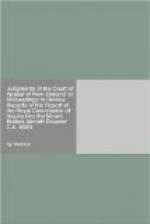“In an inquiry of this kind, an airline can either place all its cards on the table at the outset, or it can adopt an adversary stance. In the present case, the latter course was decided upon. The management of the airline instructed its counsel to deny every allegation of fault, and to counter-attack by ascribing total culpability to the air crew, against whom there were alleged no less than 13 separate varieties of pilot error. All those allegations, in my opinion, were without foundation”.
The general complaint that Air New Zealand had adopted an adversary approach and withheld evidence until a late stage needs to be assessed against the control exercised by counsel assisting the Commission concerning the order in which witnesses were to be called and the way in which the Inquiry progressed. Before the initial hearing to settle questions of procedure he supplied the airline with a “Memorandum as to areas to be covered by Air New Zealand evidence”. It is dated 13th June 1980 and specifies 21 topics. Then on 19th June he circulated a “Memorandum to counsel engaged in the DC10 Inquiry” advising that the parties were to prepare initial briefs which he would then put in sequence. And at the preliminary hearing on 23rd June it was arranged that a basically chronological order should be followed after Mr Chippindale had been called as the first witness. On the following day counsel for the Civil Aviation Division took issue with the requirement that its brief of evidence should be handed in before Mr Chippindale had appeared and the Commissioner ruled that briefs of evidence would be withheld until shortly before the witness was to be called. Mr Chippindale’s evidence occupied the first fortnight of the inquiry and thereafter the actual order in which the witnesses were to be called was arranged by counsel assisting the Commission who stated in advance the days and times at which those concerned should come forward. Thus the first Air New Zealand witness to give evidence was the chief engineer who appeared before the Inquiry on 22nd July.
It was said that the airline had not been invited through its counsel to make its position known by means of an opening address at the commencement of the public hearing. No doubt the Commissioner would have permitted such an address but the occasion for it did not seem to arise and he himself did not require the matter to be dealt with on this basis by any of the parties. And in the result witnesses were called from among the personnel of the airline in order to deal with various questions in an ordered fashion. Thus it was not until all evidence had been called that counsel for the various parties made submissions to the Commissioner.
At the conclusion of the evidence counsel for the airline invited counsel assisting the Commission to inform him what were the main issues upon which closing submissions were requested. However the extended written answer to that enquiry includes no suggestion whatever that the conduct of airline witnesses or the post-accident conduct of the employees was in issue. And the Commissioner himself said this in paragraph 375 about the airline’s submissions:




